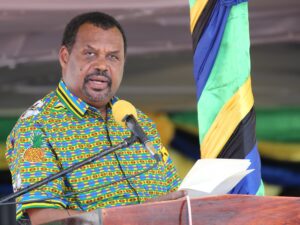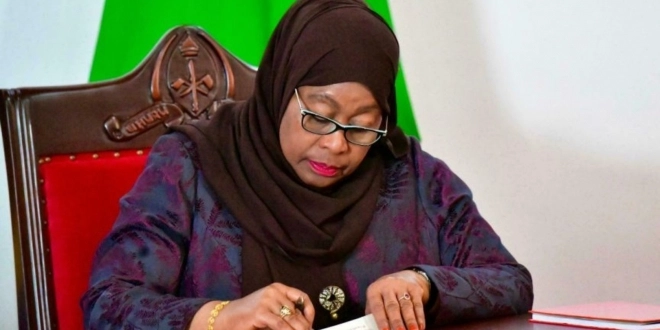Tanzania PRESIDENT Samia Suluhu Hassan has cancelled celebrations to mark the country’s 61 Independence Day on December 9 and directed the funds earmarked for the event to be used to construct school dormitories for kids with special needs.
Tanzania which marks its 61st anniversary this year, celebrates her independence from British rule annually on December 9.
A statement released by the Minister of State Prime Minister’s Office (Policy, Coordination and Parliamentary Affairs), Mr George Simbachawene on Monday, said the 960m/- budget should be used to construct dormitories for eight primary schools in Tanzania.
This is not the first time the Head of State cancels Independence Day celebrations.
In 2015, Samia’s predecessor, the late John Magufuli cancelled Tanzania’s Independence Day celebrations directing that the funds budgeted for the event be channeled to build (Mwenge-Morocco) Road in Dar es Salaam.
In 2020 he did the same and directed that the funds earmarked for the event be used to buy medical facilities.

Simbachawene said, “the 61th anniversary will be celebrated through debates and conferences held in all the districts in the country.”
“The debates and conferences will be preceded by various schedules for regional and district leaders to carry out social activities in different areas including cleaning hospitals, schools, elderly homes and groups with special needs. Therefore, this year’s celebrations will not have parades and other National activities,” he said
Source: allafrica.com
Share this news
This Year’s Most Read News Stories

CCM ready to task state organs on Zanzibar Airport deal
Ruling party Chama Cha Mapinduzi-Zanzibar has said it is ready to task state organs to investigate some of the claims against its government that have been raised by opposition politicians on the Abeid Amani Karume International Airport (AAKIA).Continue Reading

Tanzania Declares End of Marburg Virus Disease Outbreak

Tanzania today declared the end of Marburg virus disease outbreak after recording no new cases over 42 days since the death of the last confirmed case on 28 January 2025.
The outbreak, in which two confirmed and eight probable cases were recorded (all deceased), was the second the country has experienced. Both this outbreak, which was declared on 20 January 2025, and the one in 2023 occurred in the north-eastern Kagera region.
In response to the latest outbreak, Tanzania’s health authorities set up coordination and response systems, with support from World Health Organization (WHO) and partners, at the national and regional levels and reinforced control measures to swiftly detect cases, enhance clinical care, infection prevention as well as strengthen collaboration with communities to raise awareness and help curb further spread of the virus.
Growing expertise in public health emergency response in the African region has been crucial in mounting effective outbreak control measures. Drawing on experience from the response to the 2023 Marburg virus disease outbreak, WHO worked closely with Tanzanian health authorities to rapidly scale up key measures such as disease surveillance and trained more than 1000 frontline health workers in contact tracing, clinical care and public health risk communication. The Organization also delivered over five tonnes of essential medical supplies and equipment.
“The dedication of frontline health workers and the efforts of the national authorities and our partners have paid off,” said Dr Charles Sagoe-Moses, WHO Representative in Tanzania. “While the outbreak has been declared over, we remain vigilant to respond swiftly if any cases are detected and are supporting ongoing efforts to provide psychosocial care to families affected by the outbreak.”
Building on the momentum during the acute phase of the outbreak response, measures have been put in place to reinforce the capacity of local health facilities to respond to potential future outbreaks. WHO and partners are procuring additional laboratory supplies and other equipment for disease detection and surveillance and other critical services.
Marburg virus disease is highly virulent and causes haemorrhagic fever. It belongs to the same family as the virus that causes Ebola virus disease. Illness caused by Marburg virus begins abruptly. Patients present with high fever, severe headache and severe malaise. They may develop severe haemorrhagic symptoms within seven days.
In the African region, previous outbreaks and sporadic cases have been reported in Angola, the Democratic Republic of the Congo, Ghana, Kenya, Equatorial Guinea, Rwanda, South Africa and Uganda.
Source: allafrica.com

ZSSF money not for projects, says Ali Karume
Unguja. Veteran politician and diplomat Ali Karume has called on authorities of the Zanzibar Revolutionary Government (SMZ) to refrain from using the Zanzibar Social Security Fund money for establishing commercial projects.Continue Reading










